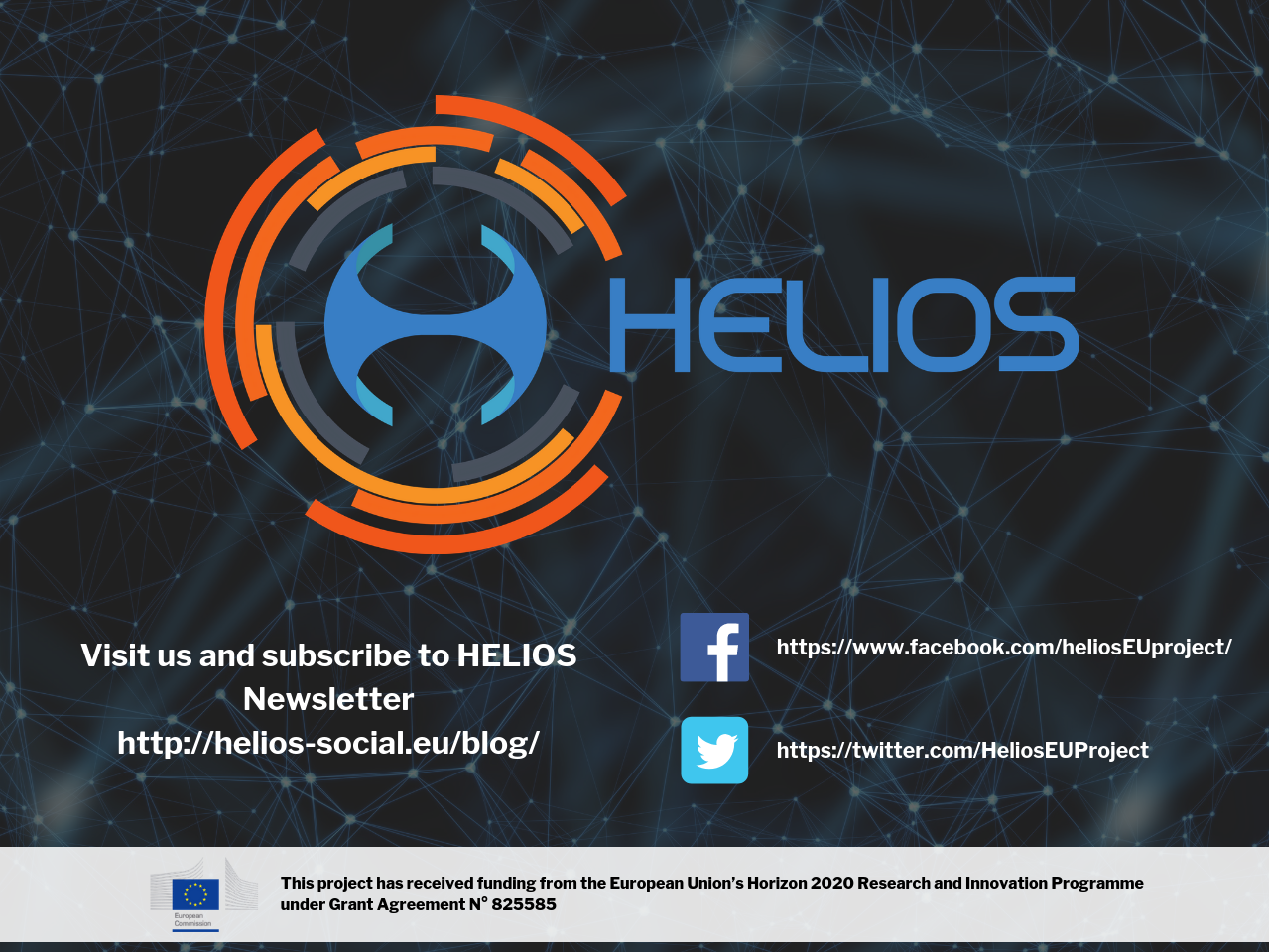EU-funded project HELIOS will redefine the future of Social Networks
HELIOS is a 3-year Research and Innovation Action (RIA) project funded by the European Commission as part of its H2020 Programme, targeting the Topic “Future Hyper-Connected Sociality” and working on the development of a decentralized social media platform, initially available for Android, that will offer several functionalities and address the dynamic nature of human communication and interactions in three dimensions: contextual, spatial and temporal. With the ambition to become a disruptive force in the European Social Media landscape, HELIOS aspires to lay the foundation for a new social network vision grounded on transparency and verification integrating blockchain-enabled network architecture to support the ad-hoc creation and management of social graphs within the context and proximity of users, provide all necessary means and features to ensure the highest level of trust and control into the platform – including novel decentralization, content creation and sharing – allow new ways to control the monetization of users’ data, and ensure the highest level of privacy in line with all the necessary ethical and legal requirements. Currently, Social Media and Networking platforms are the main channels for people to share information and experiences in real-time, but some of the online applications fail to address the complexity of social structures in which users change roles constantly from one network to another in several independent but interconnected contexts. Each Social Media fulfils a single need, remarkably well, but only sees the social graphs as a content distribution channel instead of a means to express and empower meaningful relationships easily. On the other hand, existing Social Media Networks give users the impression they are in full control of their data. However, it’s the owners’ companies that have the sole authority over a person’s information, and people without thinking twice who sign and agree to privacy policies that give these companies the power to use users’ data in any way they want, even for commercialization. It’s clear that the current monopoly is a detriment to personal privacy and lack of trust that has harmful implications for users and their personal information. Consequently, HELIOS envisions a successful decentralization setting that provides the users control of three aspects: privacy, ownership, and sharing of content – all of which are stripped away when using any of the mainstream platforms. In addition, the project will overcome the closed ecosystem stigma and will re-define the term “Social Media Platform” by creating a foundation for cooperation on social networking services with openness, flexibility, versatility, effectiveness and scalability, that follows the concepts of Contextual Integrity where users will be able to share information based on their context or sphere of life (e.g. friends, work, studies, etc.) the same way they do in the physical world. The project has a consortium, coordinated by VTT, composed by 15 partners from several EU-Member States and with different areas of expertise to address all the development of the platform, following novel concepts for social graph creation and management, adding trust and transparency to enrich the value of users, that will be tested on different use cases along the life of the project. The partners are VTT (Finland), Atos (Spain), Centre for Research and Technology Hellas (Greece), Grassroots Arts and Research (Germany), LINKS Foundation (Italy), Nagoon AB (Sweden), Swiss TXT (Switzerland), Trinity College Dublin (Ireland), Università di Pisa (Italy), Universitat Autònoma de Barcelona (Spain), Universitat Politècnica de València (Spain), Universitat Passau (Germany), University of Helsinki (Finland), Worldline Iberia (Spain), and Escola Massana (Spain). For more information visit: www.helios-h2020.eu Subscribe to the HELIOS Newsletter and follow us on Facebook (@heliosEUproject) and Twitter (@HeliosEUProject)



